Stroom Invest interviews / curator Youri Appelo
Youri Appelo is artistic director of Expoplu in Nijmegen, the exhibition space of one of the longest running artist initiatives in The Netherlands. At the moment he is working on a new exhibition program for the coming two years following different formats and program lines dealing with current political and social issues, seen from an educational point of view.
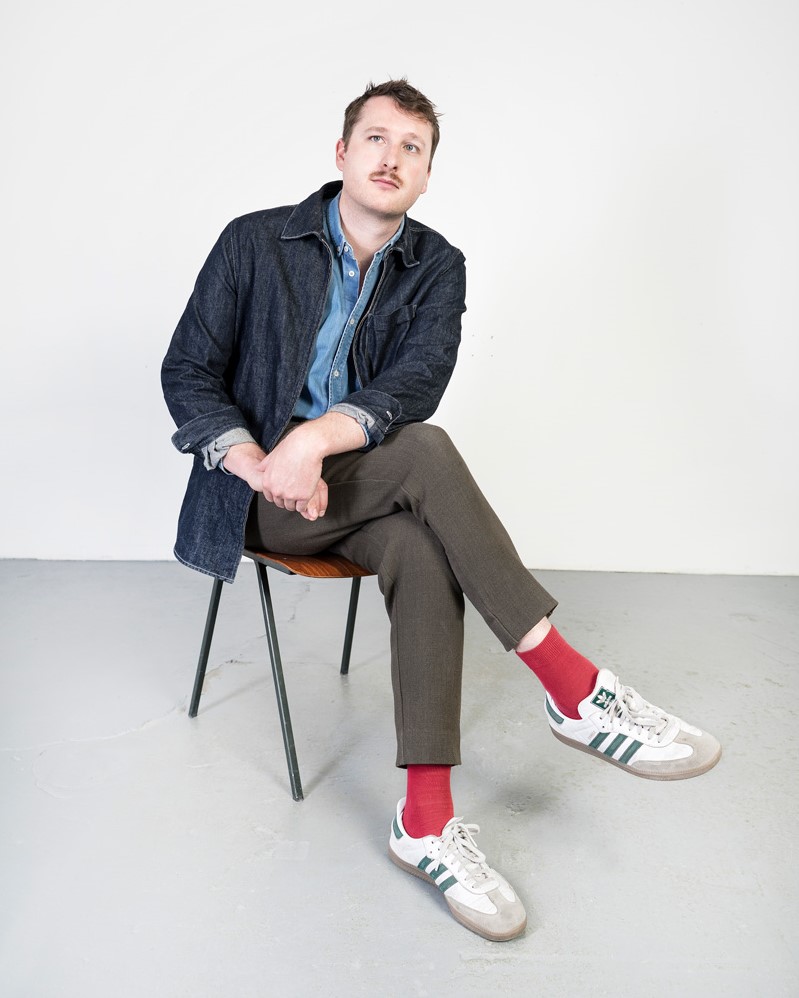
Frits Dijcks: What triggered you to become a curator?
Youri Appelo: I guess I rolled into it a bit. It was a long organic process of finding out what suited best to the goals I wanted to achieve. During my bachelor Teaching in Fine Arts and Design I became more interested in museums. So I decided to do a master in museology in Amsterdam, where I focused on how education could be implemented in a more physical form, instead of seeing education as an external addition to exhibitions. I also got interested in curation and did my internship at the Hamburger Bahnhof in Berlin.
When I moved to Arnhem, I started working at Expoplu in Nijmegen. I didn’t only want to curate exhibitions but I also wanted to experience everything that deals with making exhibitions exhibitions and the organization of an artspace. To take all pieces apart, which is what I have been doing for the last years at Expoplu.
So you already had some sort of goal during your studies at art school?
Well, I found it interesting that in museums the educational part was organized externally from the project itself. I wanted to know how you could integrated this in an earlier stage of the process. At the Hamburger Bahnhof for instance, there was an exhibition called ‘A-Z, the Marzona Collection’ on conceptual art from the 1960s and 1970s. The educational part was added as a separate archive made of shelving units positioned in an alphabetical order which included documents of everything that was collected before. It also included a working table to copy things from the archive, It was a more discursive way to interact with the content of the exhibition.
Maybe this also has to do with the idea that making an exhibition is already a form of education.
Definitely, yes. You already have a story to tell. It is inevitable to think about the audience and to work with that. Curating is by its heart very educational.
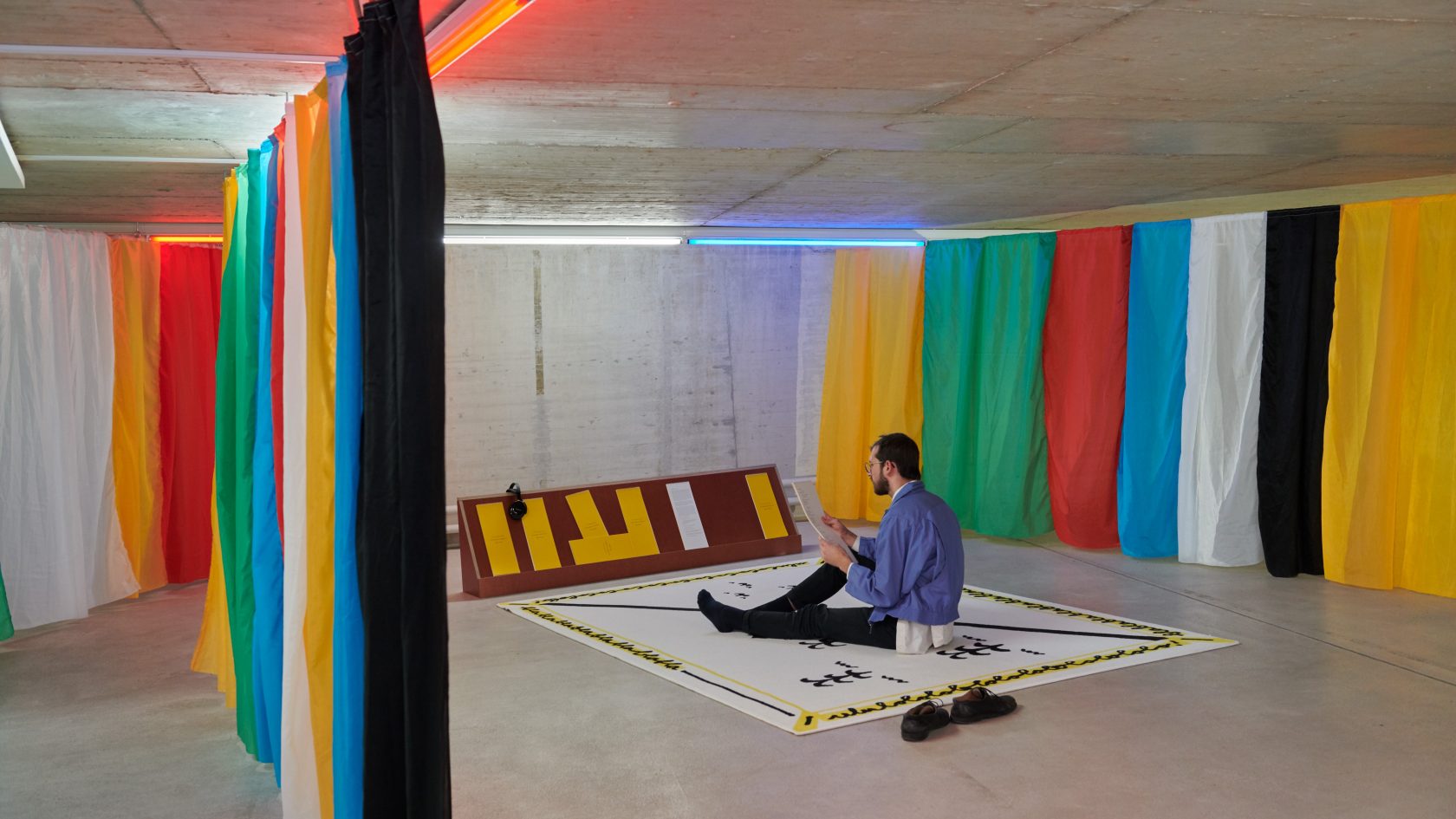
When you became the director at Expoplu, you changed its policy quite a bit, didn’t you? Why do you think this was necessary? And what were your goals for Expoplu?
When I started as its director, Expoplu was working with so called ‘denktanks’ (think tanks), small groups of programmers who changed every year. I was at first part of such a group with only one other member. When she needed to quit due to personal circumstances, I had to do it on my own. I realized this organizational format made it difficult to create a stable base and to work on long term perspectives. Managing the space itself was also quite hard and with so many changes all the time there was a lack of responsibility for the space. I tried to reorganize things and make a start with a more long term course. Since then we also experimented with different exhibition formats and I brought a team around me to to enforce Expoplu as an organization.
Expoplu is coming from a former squad housing situation and had a bottom up mentality. Is Expoplu institutionalizing now?
I think it is more a process of professionalization. It is not that it should be always like this. But I think this is necessary now, in response to the changing landscape where also subsidies change. We chose for a more stable base and to be more sustainable for the future. Expoplu is already a long term initiative, starting from 1994. But it will always be changing. When I started at Expoplu as part of this denktank format it felt if Expoplu had lost a bit of its connection to a core public.
Because of working from the denktank format, every group brought its own audience and network. I wanted to restore this and make a more sustainable and less precarious organization. I do admire different forms of organization, however I also belief you need to find the right form for internal and external time you are in as an organization.

You are also involved in other initiatives like VHDG in Leeuwarden and RUIS in Nijmegen, where you have different roles. Why is that?
These relations all have different reasons. I was born in Leeuwarden and wanted to stay connected to the city. Coming from smaller cities, I think it is important that you bring back your knowledge or expertise, after having had other experiences elsewhere. VHDG is a really fun organization to work with.
RUIS art space was initiated by Fenne Saedt. We discussed her plans for RUIS before it was yet realized. I think this was also why she asked me to become a board member. I also like Expoplu to be a stimulator for other initiatives in Nijmegen, and to give some positive contribution to the field itself. Coming from a museum background, I found out that I find it more exiting to work in smaller spaces, where things are more flexible, dynamic and vibrant. Museums are a bit slow, more bureaucratic and have different interests.

To get back to your curational practice, what projects did you like most up until now?
I always work with current or contemporary issues concerning politics and social or ecological domains. I think there are a lot of subjects that have to be discussed or to be reflected upon from-out an artistic point of view. I really like to do this in the form of exhibitions. For instance the subject of post-truth politics is still a very important theme. In 2017 I organized an exhibition ‘Alternative Truths’ on fake news and on how individual opinions have more influence on the public opinion than scientific facts. Despite this subject is a widely discussed within the field of art, I do not think it loses relevance to keep this discussion going.
Another example is ‘(un)controllable Territories’ which was about the urge of humans to control nature, which is something the Dutch are famous for. Or in the KIT- Kunst im Tunnel in Düsseldorf, I worked with Marian Stindton on how language can shape our perception. And how we could change our perception of capitalism by changing our use of language. I really get a lot of energy from searching for art works that work with these subjects and to bring them together and let the artists tell the story, not only content wise but also visually.
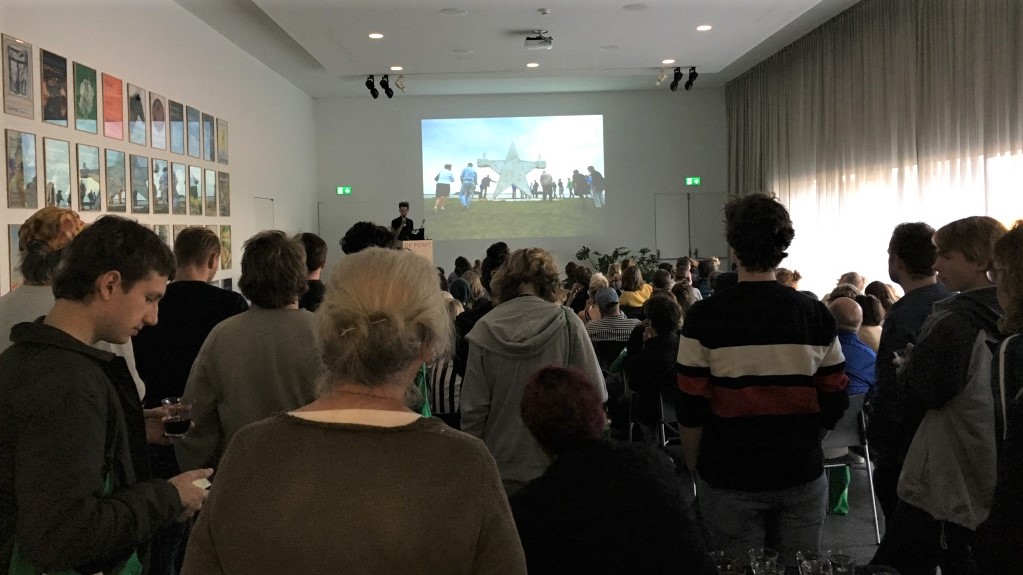
Another part of my work is about the artist practice itself. I organized an edition of ‘Day of the Young Artist’ at Museum De Pont in Tilburg, in commission of KunstpodiumT. This is an event to support starting artists. There’s a focus on questions like: how do you position yourself within the field of art? And how can you create a learning environment to maintain an educational attitude for yourself? And there were a lot of discussions about the challenges of today’s artists. I curated this project in collaboration with a lot of other organizations, such as Mister Motley, Platform BK, The Artist and the Others and many more. Also Lara Staal wrote a manifest for the young artist. Collaboration is another important part of my practice, not necessarily as a means but more as a way of working.
How do you find the artworks that you need for your themes?
I started a long time ago with collecting brochures and publications of everything I see. Analogue as well as digital. I also have a database on my computer where I list interesting exhibitions, artists, specific art works and themes I would like to work with. Over time these things grow into projects. Or sometimes when I am working on a project I will go through my own database to search for relevant texts, works, artists or exhibitions. When I contact artists to participate I often have specific works in mind, but in dialogue things of course can shift in different ways, often for the better.
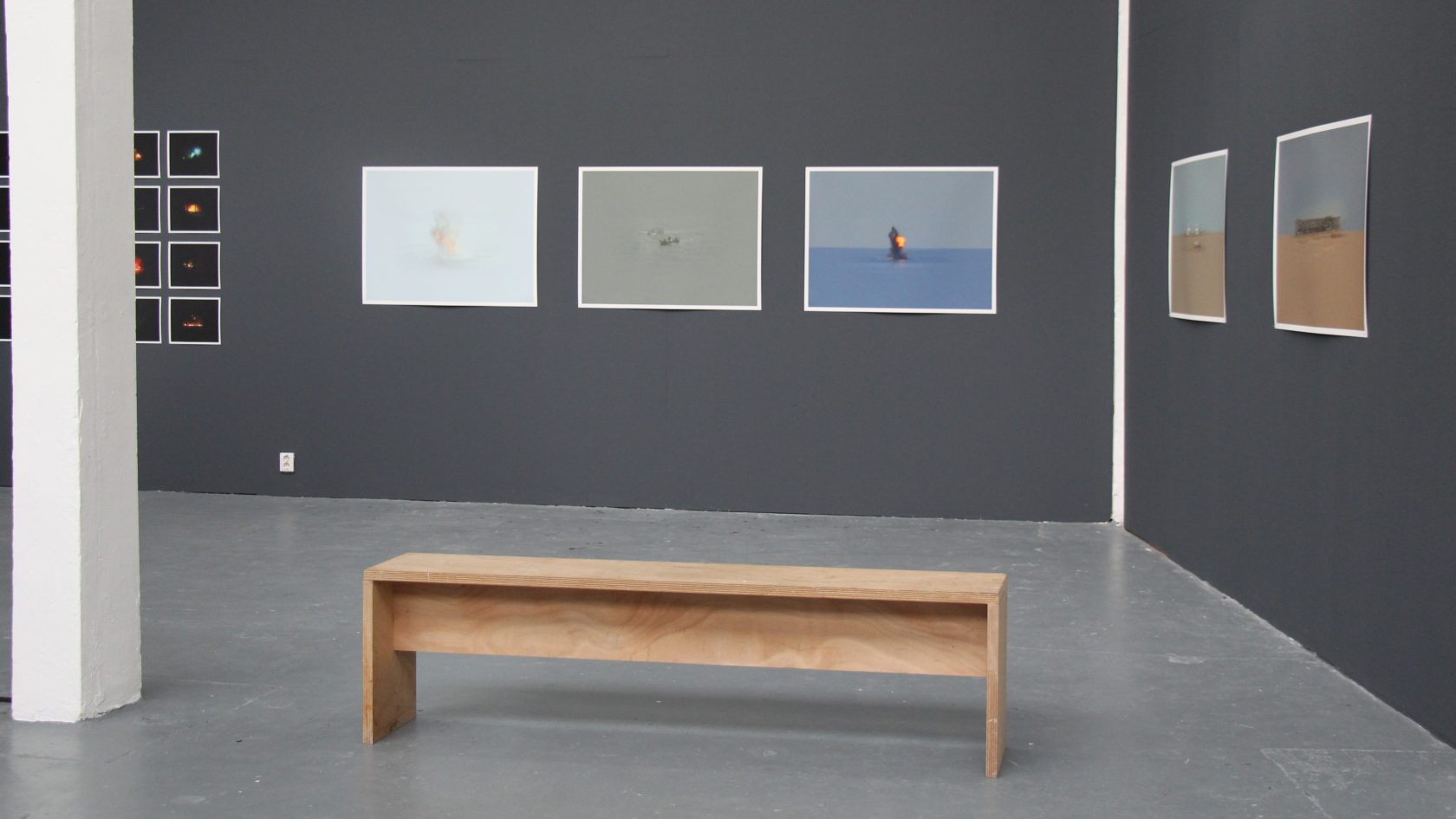
You have a strong preference for political and social themes. Is all art political to you?
No, but I am interested in art that is aware that it could be political. I think art has the potential to tell different stories about society or to expose hidden structures and is also able to tell stories that are very difficult to put into words. The use of fiction can tell a lot about reality. The world is changing very rapidly with social media and with the ability to get information online. Art has to find a new purpose or role within this from-out its own strengths and I think it already has found this to some extent; a mixture between art, philosophy, research and poetry.
Can art be a catalyst for change?
It depends on change where. There is art that can changing situations within communities. At first I was interested in political art, but I found it can sometimes be very one-sided because it is only telling me what I should think and what is morally good or bad. But that doesn’t really affect me in the core of my being. The use of a more poetic and visual strong language, and the possibility to interact with a work of art, I think has a larger potential to change things within me and the public .So I think it is possible on a more individual level. It is not only about changing people’s minds but also on a change of people’s hearts. This maybe sounds a little bit romantic and cheesy, but I do think that emotion is a quite important domain where art has a big influence.
Individuals can also be decision makers in other fields. On the other hand, decision makers often have no access to or interest in art. Do you have experiences with this? Did you, for example, invite politicians or other decision makers to visit your projects or to be part of your discussions?
Not really. We of course welcome decision makers from the municipality or the province from time to time, however I am more focused on a broader public. I think that on primary and secondary schools still a very stereotypical idea is being taught of what art is. I would rather want to change that and present a different image and idea of art. Then we will also reach our future decision makers. This is also why we try to do quite a lot with education at Expoplu.
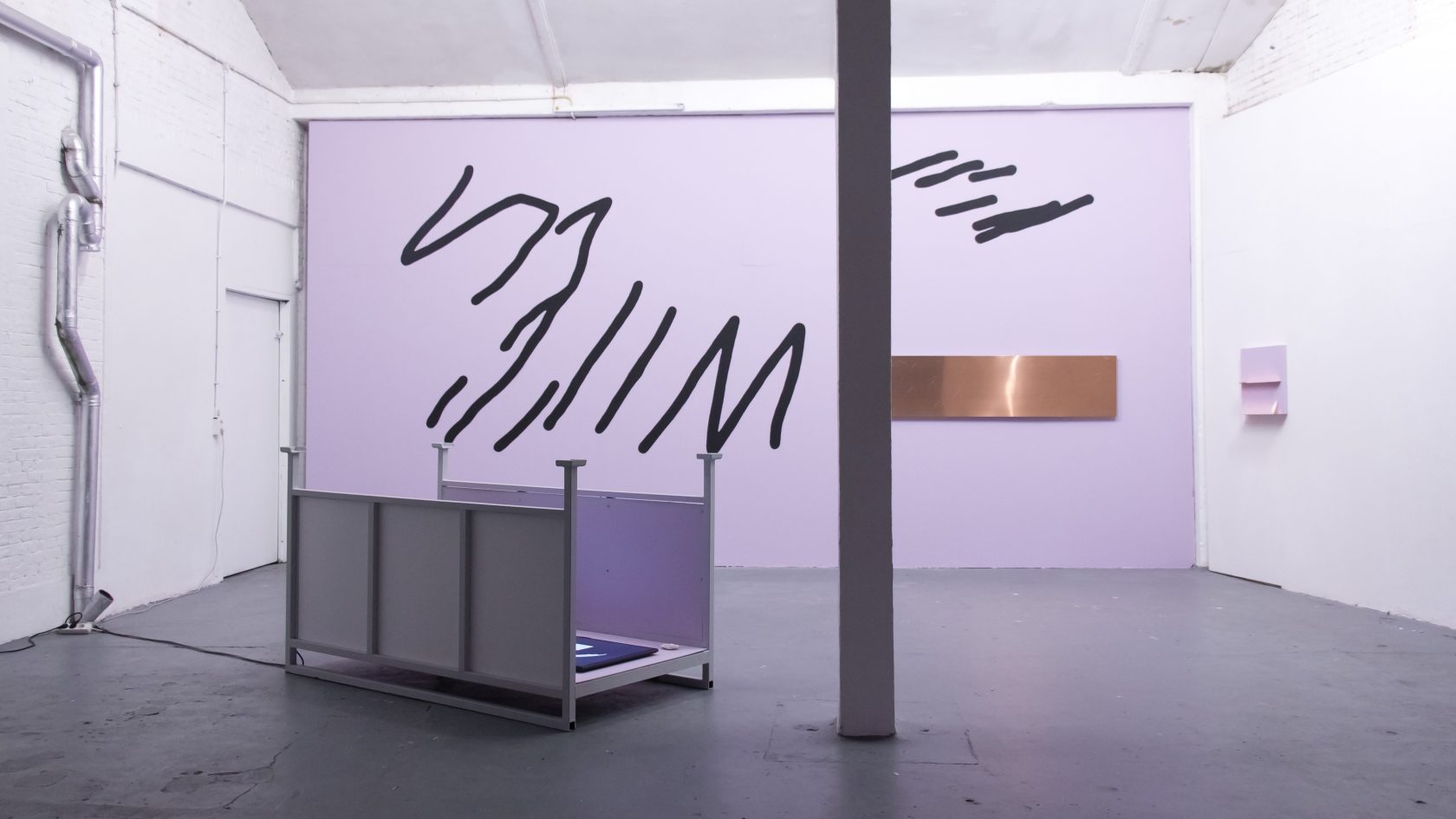
Being a decision maker yourself, what plans are you working on right now for Expoplu?
We are in the middle of preparing a new program for the coming two years, but at this moment it is difficult with the corona restrictions in mind. I really think it is important to have physical exhibitions instead of turning our program towards the digital realm.
And I have some ideas for themes I would like to address, but many are also unofficial sequels of previous exhibitions I did. One of them is about making a follow-up of the exhibition ‘Monumental Fluxus’ concerning monuments, which of course today is even more relevant than ever. For every monument there is an author and therefore a story and perspective. I am interested in how these stories and perspectives change over time, if we have to change the stories of existing monuments, remove them or create new ones for forgotten memories and stories?
I am also working on the theme of homelessness, which is increasingly becoming a problem. Even in The Netherlands. This also deals with gentrification, the housing market, the difficulties for young people to create a home and a feeling of belonging.
I also want to make a follow up exhibition on fake news, but now focusing on the role of measuring data, for example in environmental issues such as CO2 emissions. And the tricks you can apply to get the results you want or need. Like in the cigarette or car industry companies use different measuring tools to get good testing results and to bail out on government regulations. There are a lot of tricks possible to get the outcome you want by using different measuring tools. I am interested in how measuring results and fake news merge together and create a base for framing stories that are pulling us into a fictional reality. Another good example is how Donald Trump uses different death numbers to frame the idea that he did a marvelous job, while that is definitely not the case. In a broader sense these themes are about the impact of capitalism on our identity.
At Expoplu we work with 3 or 4 formats. One is about dealing with political issues which results in thematic group exhibitions showing new or existing works. Another is more experimental and starts with putting two different artists together for ten days to experiment and create a dialogue which results in a duo show. A third format is a talent development program where we have an interdisciplinary group together to work on a group project. We also add questions like: what do you want to learn and what do you have to offer to others? It is an educational format to exchange knowledge, ideas and working methods, focused on their needs.
A fourth format starts next year. It will totally be focused on collaboration. Collaboration is often seen as a means, or something external, but I see it more as a way of working and something that I would like to internalize. We try to be open for in-depth collaborations and we want to create space within our program to facilitate different forms of collaboration and to invite other people or organizations. Also to give room for different voices, opinions, perspectives and ways of working.
Sounds like you have a concrete and balanced plan. After Expoplu, what would be an interesting next step for you?
I do not have a concrete answer to this. I am not in a rush. I like to think about institutions and to see how they are organized and how to make them work better. I prefer to work in places where there is a lot of work to be done. But we’ll see what happens.
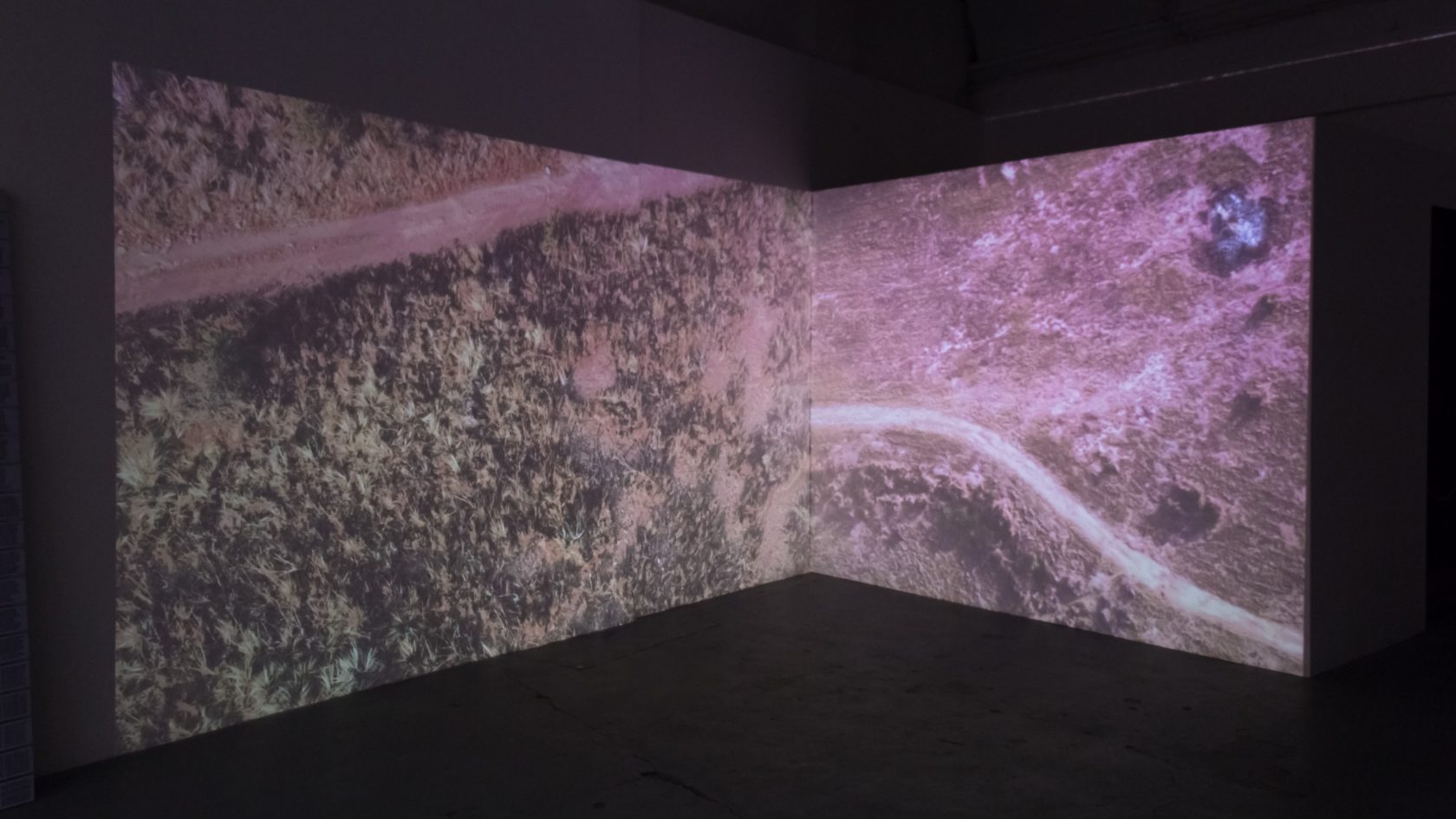
Stroom Invest Week is an annual 4-day program for artists who were granted the PRO Invest subsidy. This subsidy supports young artists based in The Hague to develop their artistic practice so that artists and graduates of the art academy can continue to live and work in The Hague. To give the artists extra incentive, Stroom organises this week consisting of an evening of public talks, studio visits, presentations and several informal meetings. The intent is to broaden the visibility of artists from The Hague through future exhibitions, presentations and exchange programs. Stroom Invest Week 2020 will take place from 21 to 25 of September.